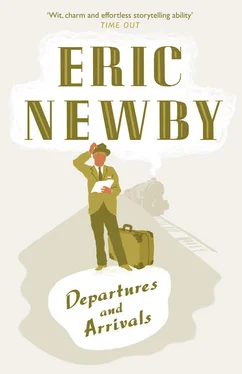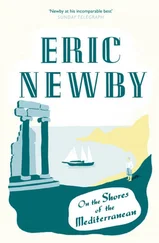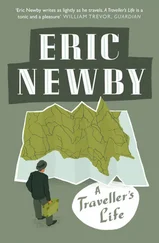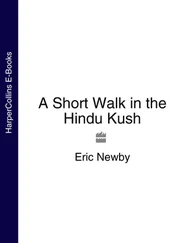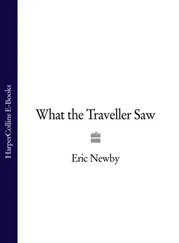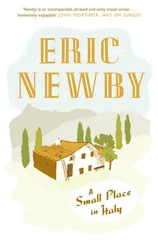It was at this time, with a force 10 gale raging and very much against my inclination, that Mischa told me to traverse a large, inclined ledge of rock that was being swept by big seas and it was here, while I was standing on the edge, wondering whether to go through with it, that one of the waves picked me up and threw me down with such violence that a doctor had to be summoned to give me a shot of morphia. Meanwhile, Mischa carried on filming without giving me the opportunity to change out of my wet clothes. Working with Mischa could be a health hazard. I should have sued him.
When the excitement of being asked to write a history of exploration had to some extent abated and I was actually confronted with the necessity of getting on with it, I felt like Hillary and Tenzing must have felt at the foot of that Everest. What I soon realized was that I knew far less about the subject than my new employers thought I knew. They had already assembled a team of researchers of mature student age whose job it was, ostensibly, to help me in the search for material; but some of these had already been commandeered to do research on the pictorial content of the book, for which it grew ever more apparent the actual text had a more or less supporting role.
At first I decided to make a list of all the well and not so well known explorers, beginning with the Ancient World, and I eventually ended up with a lot of notebooks crammed with unhelpful entries, such as: ‘Egypt – Old Kingdom – Papyrus in the reign of Sneferu (4th dynasty c. 2613–3494). Records imaginary voyage and shipwreck – Cary and Warmington, The Ancient Explorers, p. 233 and 239. See note on Celinischef, Sur un ancien conte Egyptien, 1881, p. 4–8, and in Maspero.’ And so on until I felt my reason going.
In fact, mercifully for me, it soon turned out that there was not going to be enough time to do it in this way, or even decide what was to go in and what was to be thrown out. By now we had taken temporary refuge in the ground floor flat of some great friends of ours in Spencer Park, Wandsworth, and no sooner had we moved in than great piles of books and aides-mémoire began to arrive on the premises. They were either brought by special messengers on motor cycles or in taxis from the publishers’ premises off the Charing Cross Road. Then, having found the books I needed, many of which had come from the London Library (and a lot from the Wandsworth Public Library, which had enormous numbers of travel books in its vaults), and having, for example, identified those which dealt with the Portuguese voyages to Africa and the East in the fifteenth and sixteenth centuries, I opened them at page one and began to go through them and sometimes even began to write about them, without, usually, having the slightest idea what would eventually happen. Suddenly, the whole world began to spread out before me. It was all rather exciting.
Having done this, I used to send my typescript back to the publishers where the editors would mangle and rewrite it in their own, inimitable fashion. But I could scarcely complain. They had no choice. All my contributions were over-written by many thousand words. I had, and still have, the conviction that I must let the reader know if I discover anything interesting, and unfortunately so many things are interesting. At least they are to me.
Apart from a month in Italy, where I took on the Arctic and Antarctica in a temperature of 90°F, my daily programme was unchanging. I used to get up at dawn and run 2½ miles round Spencer Park, a beautiful, Arcadian place surrounded by noble trees, before returning for a good breakfast, produced by Wanda, who had been making the bed – unless she made the bed we couldn’t get into the room. Lunch was a sandwich. I then worked all through the afternoon until dusk, then ran another 2½ miles.
Meanwhile every day Wanda set off, pedalling a bicycle, for the house we had bought in Kennington, which she was refurbishing. Before dinner I had a large whisky and with dinner shared a bottle of wine with Wanda. Then we both went to bed, whacked. We didn’t have a television.
This kind of existence went on for five months, by which time I began to feel like the Beast of Glamis, or the Man in the Iron Mask. Now, more than twenty-five years later, I am awed by my industry and enthusiasm for what was a rather difficult task.
* The World Atlas of Exploration , Mitchell Beazley, 1975.
*Made by Camtors (Camp and Sports Co-operators).
In 1974 we bought Pear Tree Court, a house on the banks of the Harbourne River at Harbertonford between Totnes and Kingsbridge, in South Devon. It was a pretty, Gothic house, its principal disadvantage being that it was so far from London (about 200 miles) that we practically had to bribe our friends to come for the weekend. It also had a rather forbidding wall surrounding it which gave the impression that it was just about to fall on us, quaking away below, but it never did.
Having acquired a Gothic house, our thoughts turned to a Gothic grotto. The nearest grotto to Pear Tree Court – whether it was Gothic or not was conjectural – was in what had been the park of Oldstones, a burnt-out Palladian house near Blackawton, the property of the Cholwich family, in which there were said to be two grottoes.
The approach was by a path which led from the house through an avenue of trees to what was on this particular day a distinctly gloomy valley with three small, artificial lakes in it – nearby there was a grotto in poor condition.
Beyond the valley there was a wood, and at its far end, in a cold and extremely exposed position, a granite plaque was set in a stone wall and inscribed with the following:
Within a Wood unknown to Public View
From Youth to Age a Reverend Hermit grew
The Moss his Bed, the Cave His Humble Cell,
His Food the Fruits, his drink the Crystal Well.
Remote from Man with God he passed His Days,
Pray’r all his Business, all his Pleasure Praise.
And in the wood, at the end of a cutting, there was, it was said, the cave in which a resident hermit, the most rare of beings in such an inhospitable climate as that of Britain, spent many years holed up in order to gratify his patron, and without catching his death of cold.
We never found this second grotto. I told Wanda that the grotto by the lake was not the sort of grotto I wanted, anyway. What I wanted was a more dotty grotto. It was almost the shortest, certainly the coldest day of the year and Wanda was sufficiently depressed to the point of not wanting a grotto at all.
‘Let’s go home,’ she said. We did so and I promptly went down with what was called flu, but was really nothing more than over-exposure to the elements. A short time later, when I came downstairs to begin a convalescent Christmas, it was Wanda who advanced the idea of building a dotty grotto, as if it had been her idea in the first place.
Eventually, we decided to build a grotto that would also act as a garden shed – planning permission not being necessary at that time for garden sheds less than 12ft high, providing they had ridge roofs, 10ft with any other sort of roof. As a further insurance against the dead hand of the planner, which is inevitably set against follies, except those of their own creation, we were fortunate in being able to site it behind part of the high stone wall which would conceal it from the public eye. It would also enable us to have access to water, without which no grotto is complete, as the River Harbourne flowed conveniently close on the other side of this wall.
The first serious discussion about it took place in the kitchen of the house the following autumn.
2 November.
Beautiful limpid, cloudless morning after a slight night frost. About 10.30 Mr Perring, Wanda and I sat down in the kitchen and went through the Folly Book ( Follies and Grottoes by Barbara Jones, Constable, £10, an essential work for anyone foolish enough to go into the folly/grotto business).
Читать дальше
